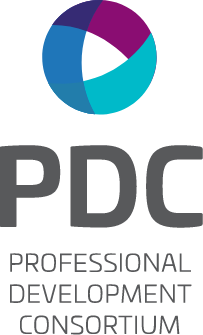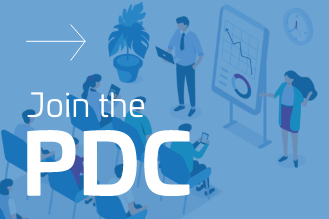You are here
Virtual MENTORING is the Future . . . At Least for Now (PART 2)
September 3, 2020

By Dr. Sharon Meit Abrahams
Previously we discussed virtual training and what you need to do to adapt. New associate training should be paired with mentoring programs which provide an opportunity for young associates to build a trusting and meaningful relationship with a senior associate and/or partner who will guide, monitor, and enhance their professional growth.
Virtual mentoring should be easier to implement than training because you should have mentoring concepts in place. Fortunately, this means your mentoring program will require less pandemic pivoting.
Mentoring will always be a win-win-win situation no matter how it is delivered. In transforming your mentoring program consider these aspects. The virtual framework should (1) communicate the guidelines or requirements for consistent mentoring, (2) ensure that mentoring becomes a natural part of daily practice, and (3) reward the mentors for their participation.
An obstacle that can trip up remote mentoring is the same obstacle that firms faced prior to the work from home orders: lack of attorney commitment due to time. Although time is a scarce commodity, it is necessary to make the effort to create and sustain a mentoring ethos at the firm.
The first year of a lawyer’s practice is a critical time in the development of professional habits, practices, and character. This period will be challenging and stressful as the new lawyers adjust to the pressures of practice management, client relations, and integrating into the firm’s culture on a remote level. Keep in mind that the goal of a mentoring program is to introduce new lawyers to your firm’s way of practicing law.
If your firm already has a mentoring program, then the adaptation to a remote environment will be replacing in-person activities like lunches and coffee chats to remote activities like phone calls and video conversations. There really is no need to change the mentoring requirements the firm has in place, just change how the activities are implemented. For example, work product feedback should be offered as often as it would be in an office environment, but now it can be provided via email or through the firm’s document management system.
Implementing a mentoring program for the first time during this period will have its challenges, but kudos to the firm for doing it. Now is the time to show your newest recruits that your firm cares about their well-being and that you want them to succeed. Building on the three aspects mentioned earlier consider these when implementing a new mentoring program:
- Get buy in from firm leaders and your associates’ committees, in fact, ask them to help design the program
- Designate who will be the administrative support person to keep and analyze data
- Ask for money, even though everything is virtual, you need funds to be creative
Mentoring is a time-consuming activity which some attorneys will avoid, so it is the firm’s responsibility to build in a reward system for those who are committed. Compensation is a key motivator, but most firms will not change their compensation system to accommodate non-billable activities. Other remote options are to publicly acknowledge those who have been outstanding mentors on town hall videos or during practice group meetings. Once back in the office a firm can give out tangible awards that attorneys can display in their offices, but in the meantime, attorneys can add icons or emblems to their signature blocks denoting them as excellent mentors.
Mentoring affords a young lawyer the right learning opportunity from the right people at the right time early in their career. While it is important to provide associates with every level of support, associates should likewise be encouraged to take a proactive role in their own development. The environment in law firms can be difficult, but effective mentoring programs are a practical way to develop successful lawyers.
Author: Dr. Sharon Meit Abrahams has been a PDC member for 28 years and is offering PDC members mentoring, program support and coaching through Legal Talent Advisors, LLC. She can help you make the pandemic pivot to virtual training and mentoring. She can be reached at sharon@legaltalentadvisors.com.


